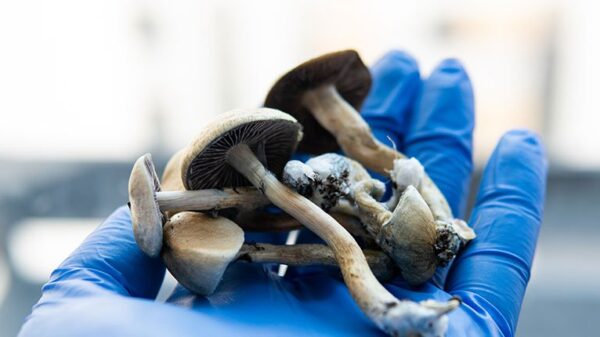Amidst the growing interest in the potential health benefits of psychedelic drugs, the United States Food and Drug Administration (FDA) has published its first document outlining fundamental considerations for researchers involved in their study.
The document published on Friday aims to help address the challenges associated with clinical studies involving these substances following a growing body of research emerging about their potential for treating everything from PTSD and depression to cocaine and alcohol use disorders. The FDA is seeking public feedback regarding the new document for the next 60 days.
“By publishing this draft guidance, the FDA hopes to outline the challenges inherent in designing psychedelic drug development programs and provide information on how to address these challenges,” said Tiffany Farchione, Director of the FDA Center for Drug Evaluation and Research’s Division of Psychiatry.
She says despite the potential psychedelics have shown for the treatment of substance use, anxiety, and mood disorders, they are still products in an investigational phase.
“The goal is to help researchers design studies that will yield interpretable results that will be capable of supporting future drug applications,” she added.
Today we published a new draft guidance to highlight fundamental considerations to researchers investigating the use of psychedelic drugs for treatment of medical conditions, including psychiatric or substance use disorders. https://t.co/msTim364eR pic.twitter.com/8hihHqLJ6j
— U.S. FDA (@US_FDA) June 23, 2023
Read more: Neuma and St. Lawrence college pioneer psychedelic exploration program for community wellness
Read more: Psycheceutical Bioscience develops non-psychoactive ketamine topical for PTSD and depression
With regard to the term “psychedelics,” the FDA says it is primarily referring to drugs that influence the brain’s serotonin system like psilocybin and LSD and empathogens like MDMA.
“This guidance applies to clinical trials that will be conducted under an investigational new drug application (IND), including such clinical trials [e.g., research or academic studies] that are not intended to support marketing applications,” reads the new document.
The document says psychedelic drugs that lack an adequate history of clinical exposure should not be tested in humans until their safety has been sufficiently established in non-clinical studies and that those drugs should be assessed for their abuse potential among users as well.
Despiting being the organization’s first draft guidance, the document is quite comprehensive and outlines considerations such as proper data collection and trial conduct among other things.
The news follows the United States making a number of significant strides with psychedelics research in recent days, such as the government of Kentucky investing US$42 million in psychedelics research for the treatment of opioid use disorders this month and Ohio State University receiving approval from the U.S. Drug Enforcement Administration to cultivate and research psilocybin mushrooms in May.
rowan@mugglehead.com














